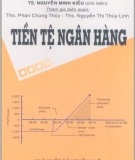TÀI LIỆU SỐ
- Quản trị kinh doanh (1962 )
- Tài chính - Ngân hàng (1392 )
- Công nghệ thông tin (1454 )
- Cơ khí - Tự động (1000 )
- Kỹ thuật xây dựng (843 )
- KT Cơ - Điện - Điện tử (1202 )
- Kế toán - Kiểm toán (985 )
- CN Hóa học - Thực phẩm (948 )
- Nông nghiệp - CN Sinh (958 )
- Môi trường (629 )
- Du lịch - Việt Nam học (622 )
- Ngoại ngữ (487 )
- Kiến trúc - Mỹ thuật CN (301 )
- Luận văn - Báo cáo (772 )
- Y khoa (1371 )
- Môn học chung (685 )
- Kỹ năng mềm (310 )
Danh mục TaiLieu.VN
- Mẫu Slide Powerpoint
- Luận Văn - Báo Cáo (344720)
- Kinh Doanh Marketing (65512)
- Kinh Tế - Quản Lý (48934)
- Tài Chính - Ngân Hàng (55898)
- Công Nghệ Thông Tin (142209)
- Tiếng Anh - Ngoại Ngữ (47066)
- Kỹ Thuật - Công Nghệ (134345)
- Khoa Học Tự Nhiên (107174)
- Khoa Học Xã Hội (82451)
- Văn Hoá - Nghệ Thuật (54408)
- Y Tế - Sức Khoẻ (173915)
- Nông - Lâm - Ngư (62504)
- Kỹ Năng Mềm (29016)
- Biểu Mẫu - Văn Bản (27610)
- Giải Trí - Thư Giãn (51994)
- Văn Bản Luật (198854)
- Tài Liệu Phổ Thông (402015)
- Trắc Nghiệm Online (213578)
- Trắc Nghiệm MBTI
- Trắc Nghiệm Holland
Tài liệu nổi bật
Kết quả 5305-5316 trong khoảng 15922
-
Bài giảng Nguyên lý quản trị kinh doanh: Chương 8 (phần 1) - Nguyễn Hải Sản
Bài giảng Nguyên lý quản trị kinh doanh - Chương 8: Các nguồn tài chính của doanh nghiệp (phần 1). Sau khi học xong chương này, người học có thể hiểu được một số kiến thức cơ bản về: Các nguồn ngân quỹ do doanh nghiệp tự tài trợ, các nguồn tài trợ từ ngoài doanh nghiệp, các hình thức tài trợ chủ yếu, những khác biệt chủ yếu giữa nguồn tài...
26 p ntt 11/04/2021 109 0
-
Bài giảng Nguyên lý quản trị kinh doanh: Chương 8 (phần 2) - Nguyễn Hải Sản
Bài giảng Nguyên lý quản trị kinh doanh - Chương 8: Quản trị tài chính (phần 2). Sau khi học xong chương này, người học có thể hiểu được một số kiến thức cơ bản về: Vai trò của giám đốc tài chính, các mục tiêu tài chính, nhu cầu ngân quỹ, tăng vốn cổ phần và vay nợ, chiến lược huy động và tài trợ vốn cho doanh nghiệp. Mời các bạn cùng tham...
15 p ntt 11/04/2021 116 0
-
Bài giảng Nguyên lý quản trị kinh doanh: Chương 9 - Nguyễn Hải Sản
Bài giảng Nguyên lý quản trị kinh doanh - Chương 9: Quản trị rủi ro và bảo hiểm. Sau khi học xong chương này, người học có thể hiểu được một số kiến thức cơ bản về: Rủi ro theo suy tính và rủi ro thuần tuý, quy trình quản trị rủi ro, các biện pháp quản trị rủi ro, các mục tiêu của mua bảo hiểm, các loại bảo hiểm tổng hợp, các loại bảo...
25 p ntt 11/04/2021 80 0
-
Chapter 4 - Influencing: power, politics, networking, and negotiation. Learning objectives of this chapter include: Is power good or bad for organizations? Position power, types of power, acquiring and losing power, common organizational political behaviors,...
38 p ntt 11/04/2021 141 1
-
Chapter 2 - Leadership Traits and Ethics. Learning objectives of this chapter include: List the benefits of classifying personality traits, describe the big five personality dimensions, explain the universality of traits of effective leaders, discuss why the trait of dominance is so important for managers to have, state how the achievement motivation theory and the leader motive profile are related and different.
44 p ntt 11/04/2021 117 0
-
Chapter 3 - Leadership Behavior and Motivation. Learning objectives of this chapter include: Behavioral theory paradigm; leadership behavior and leadership style; university of iowa leadership styles; university of michigan leadership model: two leadership styles, one dimension; the leadership grid;...
59 p ntt 11/04/2021 104 0
-
Chapter 5 - Contingency Leadership Theories. This chapter is designed to provide an overview of four of the more well-known contingency theories of leadership, which include the normative decision model (Vroom & Vetton, 1973), the situational leadership model (Hersey & Blanchard, 1984), the contingency model (Fiedler, 1967), and the path-goal theory (House & Dessler, 1974).
25 p ntt 11/04/2021 124 0
-
Chapter 6 - Leader – Follower relations. Leadership is a process in which leaders and followers interact dynamically in a particular situation or environment. Leadership is a broader concept than that of leaders, and the study of leadership must involve more than just the study of leaders as individuals. The study of leadership must also include two other areas: the followers and the situation.
39 p ntt 11/04/2021 131 0
-
Chapter 1 Who Is a Leader? Learning objectives of this chapter include: Briefly describe the five key elements of leadership, list the ten managerial roles based on their three categories, explain the interrelationships among the levels of leadership analysis, describe the major similarity and difference between the trait and behavioral leadership theories, discuss the interrelationships between trait and behavioral leadership theories and...
44 p ntt 11/04/2021 134 0
-
Chapter 7 - Team leadership and self-managed teams. The group perspective showed that followers' behaviors can be the result of factors somewhat independent of the individual characteristics of followers. Group factors that can affect followers' behaviors include group size, stages of group development, roles, norms, and cohesion. Leadership practitioners should use these concepts to better understand followers' behaviors.
33 p ntt 11/04/2021 124 0
-
Chapter 8 - Charismatic and transformational leadership. As an organizing framework, this chapter introduced the Congruence Model as a way to consider many of the situational factors leaders should consider. In terms of work factors, leaders need to be aware of how task interdependence, task structure, and job characteristics can affect both their own and their followers' behaviors, and how they might change these factors in order to improve...
32 p ntt 11/04/2021 137 0
-
Chapter 9 - Leadership of culture, ethics, and diversity. This chapter examined the relationship between personality traits, personality types, intelligence, and emotional intelligence with leadership success. In general, all of these attributes can help a leader to influence a group toward the accomplishment of its goals, but in and of themselves they are no guarantee of leadership success.
41 p ntt 11/04/2021 114 0
Đăng nhập

























